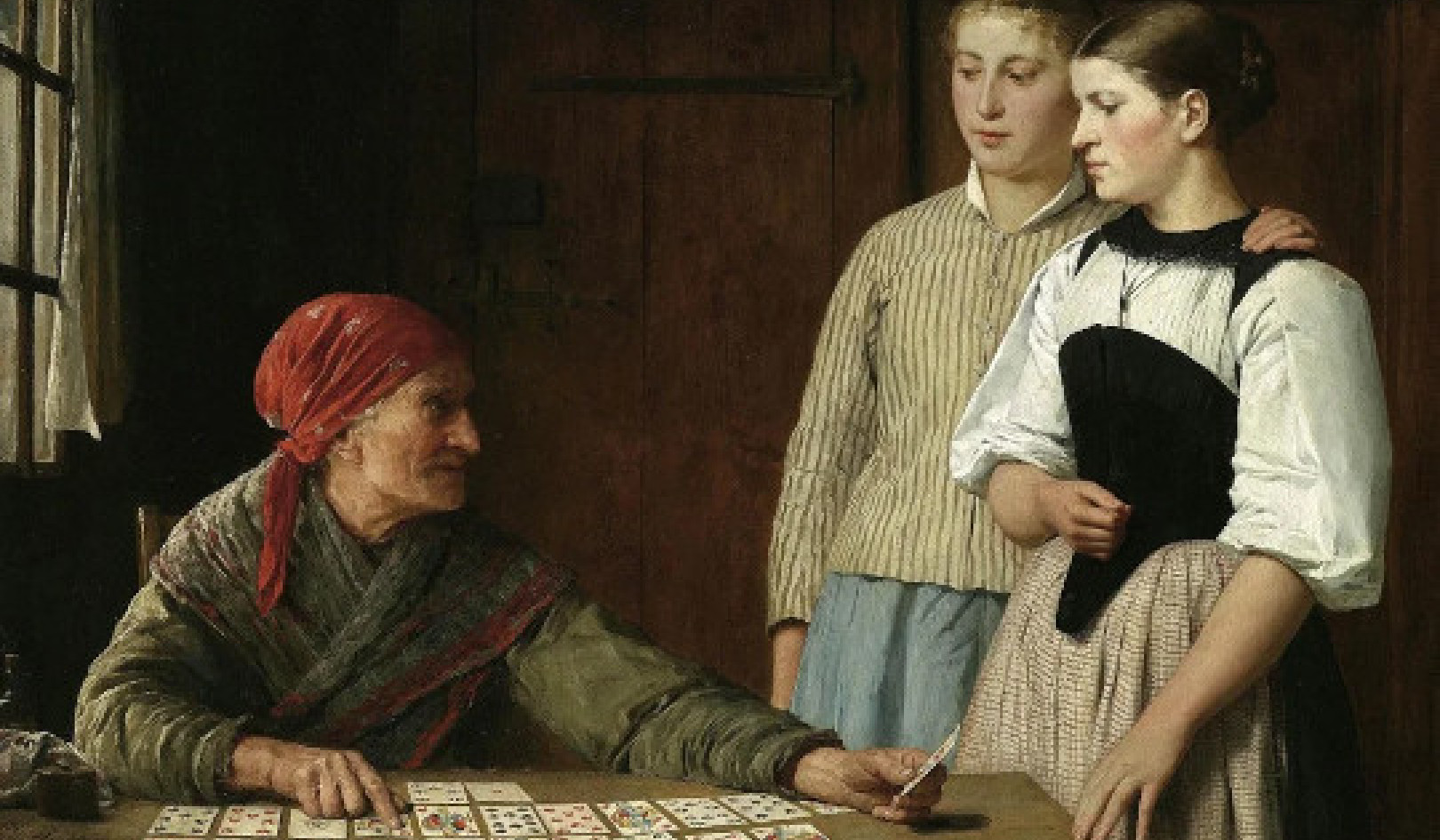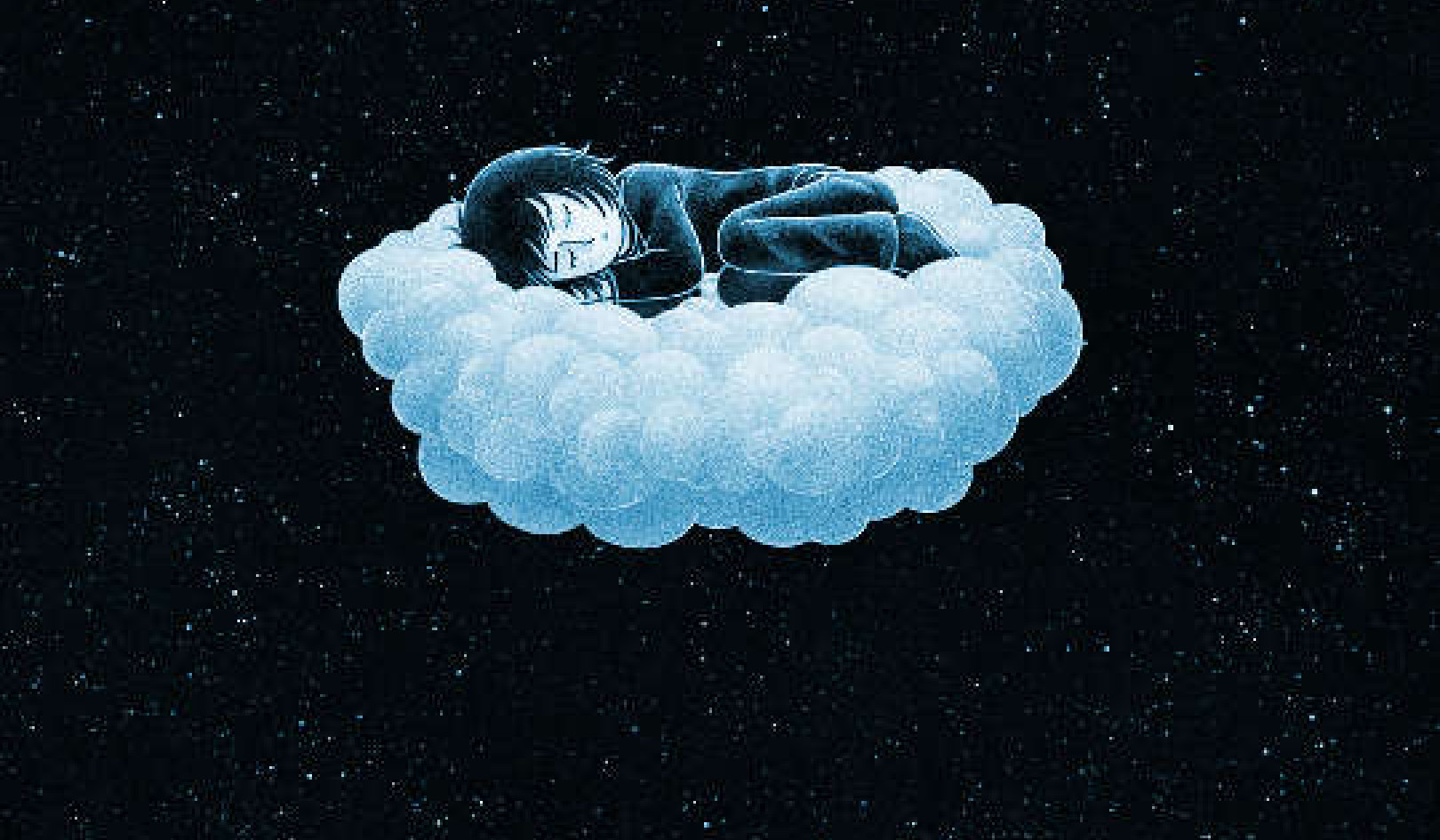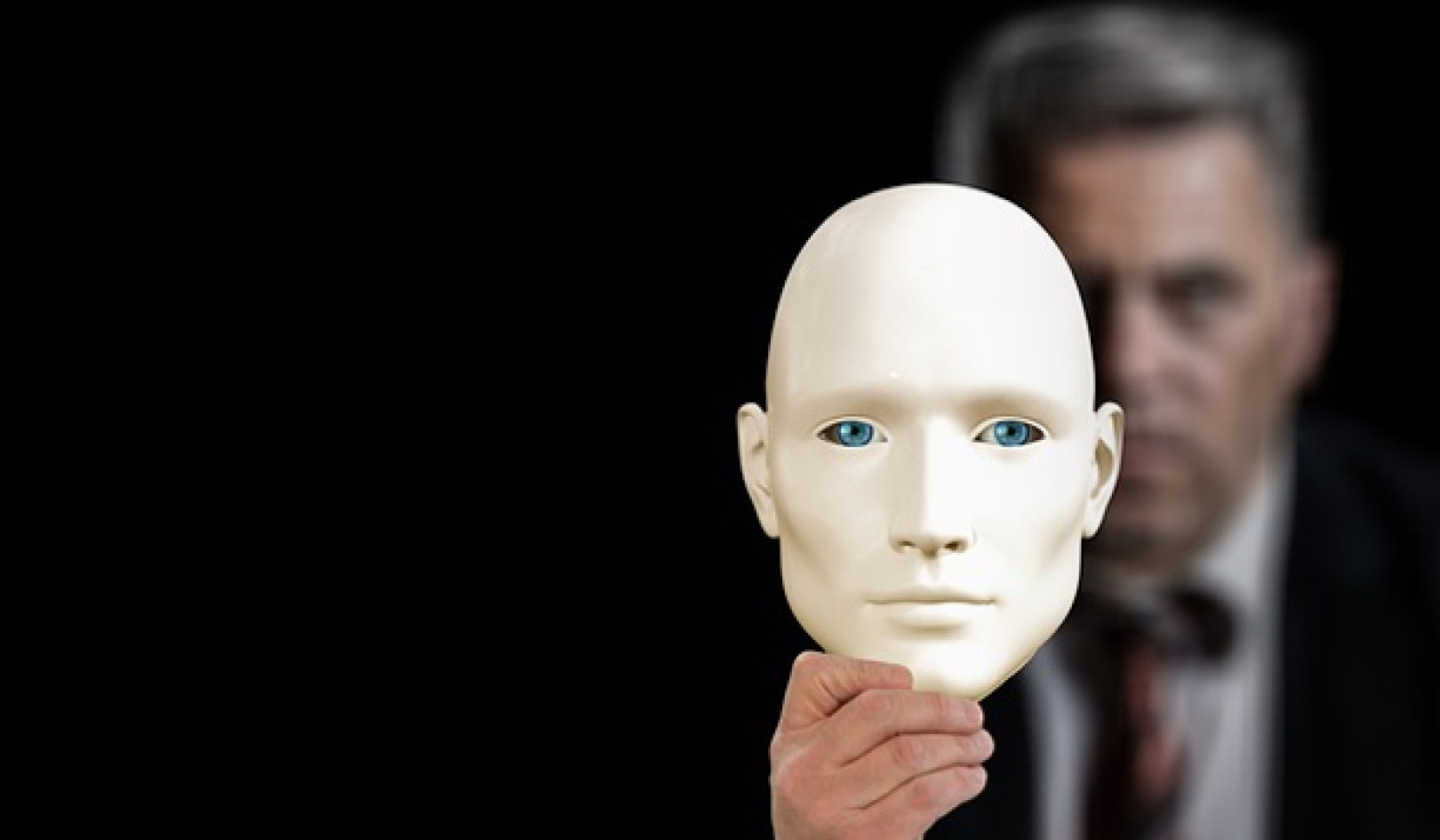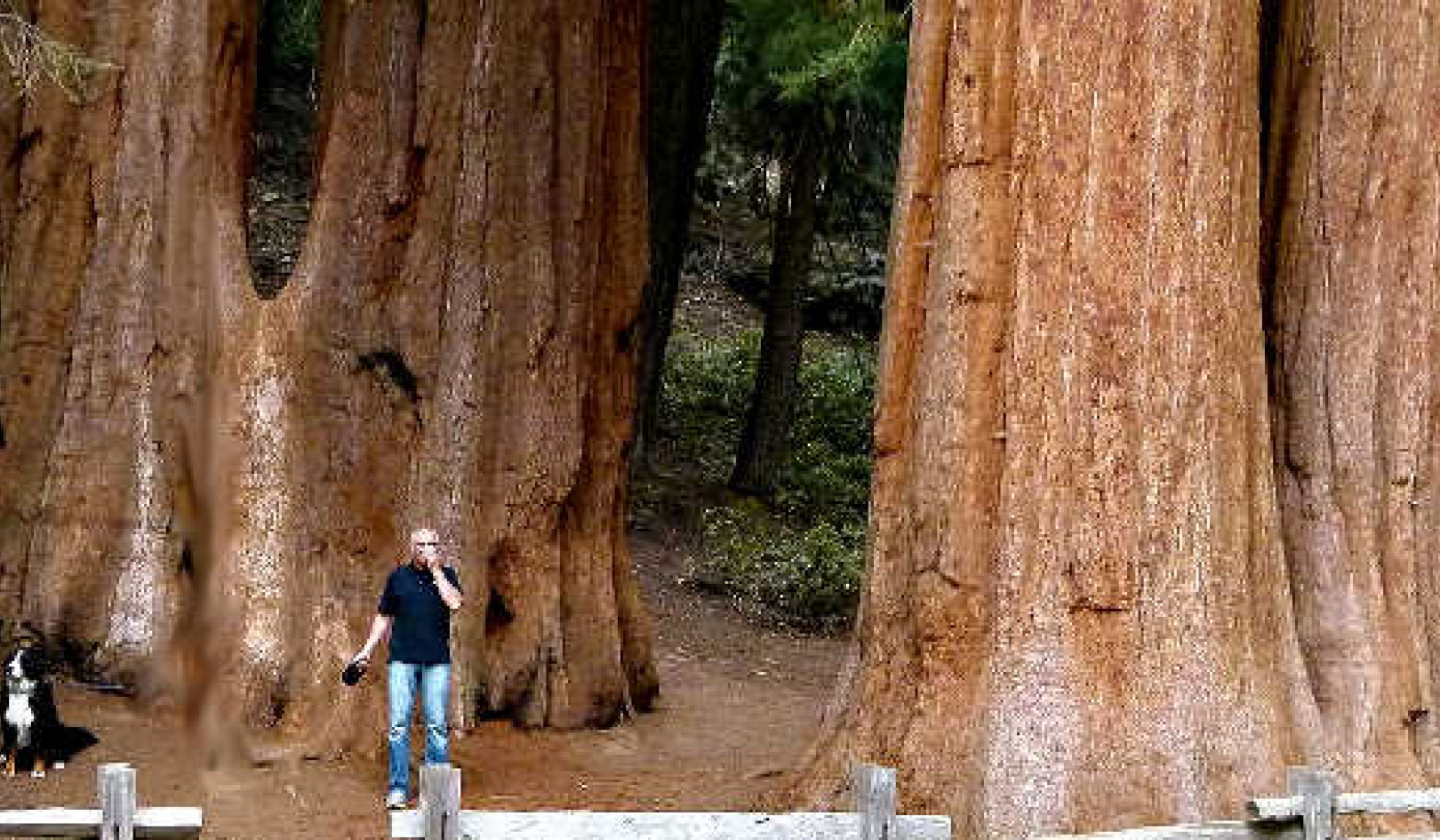
Image by ?????????? ??????? (dog added by InnerSelf)
I had believed in reincarnation as a child. It was almost a knowing, as I recall. I once had a sense of a place and culture where I’d been many centuries ago, though no recollection of past lives. I just recall a frisson of recognition as I was reading a history book and came across a passage about Chichén Itzá, the pre-Columbian city built by the Mayans in what is now the Mexican Yucatán. Filled with excitement and an absolute conviction, I ran to tell my mother and grandmother.
My revelation that I’d thought so thrilling was instantly poo-pooed as “just your imagination.” As I’ve since learned, that’s a common reaction by parents in the Western world when hearing their children express a belief in reincarnation.
Put it down to childhood imagination if you will, but that moment of discovery—and even realization—became embedded in my memory. It never left me, even though I learned not to speak of that childhood conviction and came to view it myself as possibly just a flight of fancy and something that didn’t quite fit with the world of fact and reason—certainly not with the journalistic requirement of hard evidence. Then Brio’s physical death propelled me toward a new exploration of the idea of physical afterlife.
Could Brio Really Come Back?
I had recurring dreams of losing Brio. I would search for him—searching and searching—because without him I felt lost. But perhaps my sleeping visions hinted at a different truth: that our current connection had been inspired long, long ago. That I, perhaps, had known Brio in former lives. That Brio and I had lost and found each other over and over again—in different times, circumstances, and disguises.
Now I searched again. I remembered what my friend had said about Brio: “You can see the pyramids in his eyes.” I now sought to discover the many lives of Brio that had so changed mine. I recalled the ayurvedic doctor who said he was an old soul. I recalled the chiropractor David Mehler’s statement that Brio had been “some sort of a king in a different lifetime.”
Skepticism in The "Age of Reason"
Skepticism about any belief in an afterlife and reincarnation has ruled in the West ever since the Age of Enlightenment, centered in the eighteenth century, promoted the rationalist philosophy of the French philosopher René Descartes. The Age of Reason and the scientific revolution were close relations.
So perhaps it comes as a surprise to many people—as it did to me, frankly—that the West nevertheless inherited, from Greek philosophy, a quite different thread of historical belief regarding reincarnation. Pythagoras was famous for his mathematical theories—particularly in relation to the foundations of music. But in his time he was also known for his teachings of a doctrine called metempsychosis, which held that the soul doesn’t die and undergoes a cycle of rebirths.
Another fascinating thing: Pythagoras apparently believed that the soul of a human could be reborn in the body of an animal. And the story goes that, in the howl of a dog, he believed he’d heard the voice of a friend who’d died.
Plato also believed in metempsychosis—reincarnation. He thought a fixed number of souls existed. Therefore they had to keep returning in different bodies. He wrote, “That is the conclusion, I said; and if a true conclusion, then the souls must always be the same, for if none be destroyed they will not diminish in number.”
Can Animals Reincarnate As Humans?
The ideas of these Greeks about an afterlife and reincarnation seem strikingly similar to the beliefs of Eastern religions, which hold that our souls reincarnate until we’ve reached enlightenment. Buddhist scholar Robert Thurman points out that it’s believed that the Buddha himself had reincarnations as animals. He spoke of it himself, Thurman explains. “He was a lion. He was a frog, and other animals. Buddhists believe that humans have been animals and animals can be reborn as humans.”
I remembered what the ayurvedic healer had said—that Brio wouldn’t come back as a dog. Can animals reincarnate as humans? The West, though remaining largely skeptical, has come to accept the notion of reincarnation to some degree. Indeed, as recent interest continues to develop in the field of spirituality, there is a deepening curiosity about the “transmigration of souls,” as Pythagoras put it.
The notion that souls not only live on but come back has drawn serious attention from a few researchers. The most notable is the late Dr. Ian Stevenson, founder and director of the Division of Perceptual Studies at the University of Virginia. Stevenson traveled the world for forty years, investigating thousands of cases of children who claimed to remember past lives. He documented physical and psychological qualities in many of these children that resembled people who had died.
Stevenson’s work was widely criticized. Yet the work of the Division of Perceptual Studies continues under the leadership of Jim Tucker, a professor of psychiatry and neurobehavioral sciences. He focuses on American cases in his research at the Virginia Foundation. “Over the decades,” Tucker told me, “we’ve now studied over twenty-five hundred cases of children who report memories of past lives.”
Remembering Past Lives
One of the most publicized was that of a young boy who remembered in detail the life of a World War II pilot killed in a crash. James Leininger, born in Louisiana, was around two years old when he started having constant nightmares of being in a plane crash. He said he’d been a pilot in World War II and had flown off a boat when he was shot down. He recalled the name of the boat and the name of a friend and colleague—a fellow crew member who was also killed.
Research proved that there was in fact an aircraft carrier with the name James had given. A plane had indeed crashed as James described, and the pilot in the plane next to his bore the name James had said was that of his friend.
I asked Tucker if he’d ever encountered reincarnation stories involving animals—people remembering lives as animals. He said he had not. But he told me Ian Stevenson had alluded to some such cases in his book Children Who Remember Previous Lives. Stevenson wrote,
“After I overcame an initial prejudice against such cases, I conscientiously recorded notes of whatever anyone wished to tell me about them, and yet I have notes about fewer than thirty cases of claimed nonhuman animal rebirth altogether. Most of them have as their subject a human who has said that he had an incarnation as a nonhuman animal. Sometimes such an animal life occurred as an ‘intermediate’ life between another human life and the subject’s present one.”
But how can there be proof of a past life as an animal—of an animal reincarnating then as a human? Stevenson added,
“The cases of claimed lives as nonhuman animals can, in the nature of things, offer little evidence of the kind that we have found in the ordinary human cases, and most of them provide no evidence whatever—merely the subject’s unsupported claim that he had such an incarnation.”
Consciousness... Can Survive the Death of the Body
Jim Tucker agrees that “it’s difficult to map these cases onto a materialist understanding of reality . . . if the physical world is all there is, then I don’t know how you can accept these cases and believe in them. But I think there are good reasons to think that consciousness can be considered a separate entity from physical reality.” Tucker continues,
“I think these cases contribute to the body of evidence that consciousness . . . can survive the death of the body; that life after death isn’t necessarily just a fantasy or something to be considered on faith, but it can also be approached in an analytic way, and the idea can be judged on its merits.”
Tucker points to quantum physics, which proposes that physical “reality” is actually shaped by the observer, that consciousness is creating the material world. Max Planck, the founder of quantum theory said, “I regard consciousness as fundamental. I regard matter as derivative from consciousness.” So, Tucker argues, “in that case, it would mean that consciousness would not necessarily be dependent on a physical brain in order to survive, and it could continue to survive . . . after the body dies.” Tucker believes that individual consciousness may continue after death and return in a future life.
Can Dogs, Like People, Reincarnate?
Needless to say, there’s no research like Ian Stevenson and Jim Tucker’s studies with humans about the possible afterlife and reincarnation of other species. These other creatures can’t tell us about past lives—certainly not in human language. So people like me turn to psychics and intuitives for guidance.
The animal communicators I’ve met do believe in the possibility that dogs, like people, can reincarnate. They tell stories of animals, dogs and horses, who “told” them of past lives. Some believe they themselves have had animals who have come back, and they cite clients who are sure beloved companions have physically come back to them.
Nancy Kaiser, a communicator based in North Carolina, strongly believes that many of her own animals have returned in other forms—a horse, for example, returning as a kitten on a client’s farm. It’s predictable that animal communicators would personally hold such beliefs. So I find that often the stories of their clients—“ordinary” people who’ve come to think, to their surprise, that reincarnation has actually happened with their animals—are especially intriguing.
One of Nancy Kaiser’s clients, a former highly successful marketing executive in Massachusetts, told me one such fascinating tale. “It’s a love story,” Barbara Barber said right away—“a fabulous love story.”
Barber had had thirteen dogs throughout her life but had always wanted a chocolate lab. Some years ago, the right puppy finally came along and she got Cocoa, who became adored by Barbara, her husband, and their twins. “She was an absolutely wonderful puppy. She was the best dog on the planet.”
But when Cocoa was only four years old, she became ill with cancer and passed away. “It was devastating; it was just unbelievable,” Barber says. Desperate for a dog, she soon got a rescue dog. But he had major temperament issues and sadly had to be put down because he was biting children.
On the day Barber went to the vet’s office to pick up the dog’s ashes, she saw—right by the door as she entered—a chocolate lab puppy, a female. “The dog looked at me and I looked at the dog and I just melted. That dog and I just fell in love. She went nuts,” Barber recalls. As she left, Barber said to the owner of the puppy that if she ever found she could not keep the dog, Barber would take her.
Thinking that the owner probably thought she was crazy, Barber thought no more of it, but then she got a call from the vet’s office saying the puppy’s owner wanted to get in touch with her. They became friends, meeting a few times with the puppy, who, incidentally, had been named Cocoa by her owner!
About two months later the puppy owner called and said she had a new boyfriend and new job. Cocoa was alone all day. Could Barber take her? “Absolutely,” was the answer, and Barber picked up Cocoa number 2 that evening.
When she got the puppy home, “everything was so familiar,” Barber says. Cocoa number 1 had often slept on the second stair from the top. Cocoa number 2 picked the same spot. When Barber’s now ex-husband visited the house and Cocoa saw him for the first time it seemed like instant recognition. “No one can tell me different,” Barber stresses. “I’ve had thirteen dogs, and this was instant recognition. No question.”
Barber is not religious. She is spiritual, she says, but “Whether I’m spiritual or not there is no question in my mind that this dog came to me on purpose to help me through a very rough time in my life.” I wondered if Barber had ever imagined that one of her dogs would reincarnate and come back to her. “I had never given it a thought that an animal might come back,” she told me, “I’d never given it a thought.”
Continuation and Connection
People who are convinced that their animals have returned to them in other bodies often cite behavior that seems to mimic that of the animal who has passed. Barbara Barber’s “recognition” of Cocoa number 2 as Cocoa seemed to her to be confirmed by the dog’s behavior, which echoed the behavior of Cocoa number 1.
Whatever one finds in these stories, there is no question that they are about hope—about people faced with apparent endings who see continuation and connection.
Nancy Kaiser speaks of how her work communicating with animals has changed her: “Talking with animals that have died taught me that death wasn’t the big final Nothing that most people fear. . . .
I prefer the term transition, which better describes what actually happens. Transition/death is nothing more than a change in form. The energy that comprises our soul vibrates very slowly while in the physical body. When the body dies and the soul is released, the energy returns to a rapidly vibrating spiritual state.”
©2018 by Elena Mannes. All Rights Reserved.
Reprinted with permission of the publisher.
Bear and Company, imprint of: www.InnerTraditions.com
Article Source
Soul Dog: A Journey into the Spiritual Life of Animals
by Elena Mannes
 Looking for companionship after a near-fatal car crash, Elena Mannes, an award-winning television journalist and producer, decided to get her first dog. But what she found with her dog Brio shook the foundations of her physical and spiritual worlds, sending her on a quest to discover the nature of his spiritual origins and to contemplate and seek out the possibility of interspecies communication--even after death. Spanning the entire life and afterlife of Brio, including his last days and his messages to the author after he passed on, this book also explores Mannes’ investigations into the spiritual life of animals, offering a new understanding of the unbreakable bond between humans and animals.
Looking for companionship after a near-fatal car crash, Elena Mannes, an award-winning television journalist and producer, decided to get her first dog. But what she found with her dog Brio shook the foundations of her physical and spiritual worlds, sending her on a quest to discover the nature of his spiritual origins and to contemplate and seek out the possibility of interspecies communication--even after death. Spanning the entire life and afterlife of Brio, including his last days and his messages to the author after he passed on, this book also explores Mannes’ investigations into the spiritual life of animals, offering a new understanding of the unbreakable bond between humans and animals.
Click here for more info and/or to order this paperback book and/or download the Kindle edition.
Books by this Author | Related Books
About the Author
 Elena Mannes is an award-winning independent documentary director/writer/producer whose honors include six Emmy Awards, a George Foster Peabody Award, two Directors Guild of America Awards, and nine Cine Golden Eagles. She has written, directed, and produced series and documentaries for CBS, PBS, ABC, and the Discovery Channel, including The Amazing Animal Mind and the PBS primetime special The Music Instinct, which led to the writing of her book, The Power of Music. Visit her website at https://www.souldogbook.com/
Elena Mannes is an award-winning independent documentary director/writer/producer whose honors include six Emmy Awards, a George Foster Peabody Award, two Directors Guild of America Awards, and nine Cine Golden Eagles. She has written, directed, and produced series and documentaries for CBS, PBS, ABC, and the Discovery Channel, including The Amazing Animal Mind and the PBS primetime special The Music Instinct, which led to the writing of her book, The Power of Music. Visit her website at https://www.souldogbook.com/

























